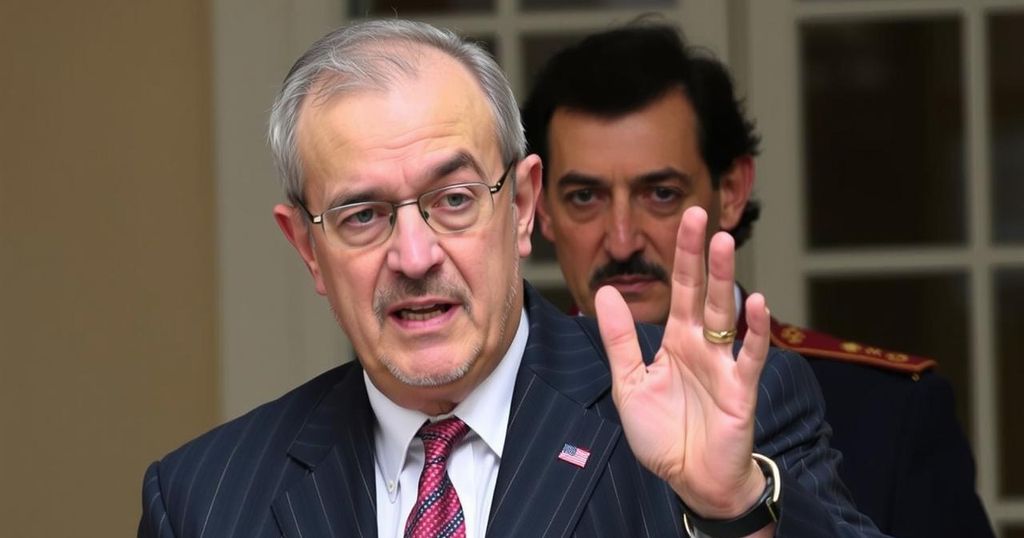In the weeks leading to his ouster, Syrian President Bashar al-Assad accused Turkey of supporting Sunni rebels. This dialogue occurred during a meeting with Iranian Foreign Minister Abbas Araghchi, highlighting the deteriorating position of Assad amid escalating attacks from Hayat Tahrir al-Sham (HTS). The situation reflects broader regional tensions, with implications for Iranian interests as Assad’s regime has fallen, undermining Tehran’s influence.
In the final days before his ouster, Syrian President Bashar al-Assad expressed his concerns to Iranian Foreign Minister Abbas Araghchi about Turkey’s alleged support for Sunni rebel groups, particularly Hayat Tahrir al-Sham (HTS), which formerly aligned with al-Qaida. This discussion occurred during a meeting in Damascus on December 2, when Assad claimed Turkey had intensified its efforts to destabilize his regime. In response, Araghchi reassured Assad of Iran’s unwavering support and vowed to address these issues with Turkish officials.
Subsequently, Araghchi met with Turkish Foreign Minister Hakan Fidan, wherein tensions escalated as Iran voiced its discontent regarding Turkey’s cooperation with U.S. and Israeli interests in the region. Fidan attributed the ongoing conflict to Assad’s ineffective governance and failure to engage in meaningful peace negotiations, suggesting that such decisions had led to the current crisis. Furthermore, Iranian Supreme Leader Ayatollah Ali Khamenei suggested that the United States and Israel orchestrated Assad’s removal, indicating Turkey’s complicity without explicitly naming it.
Turkey’s involvement has been significant since the onset of the Syrian civil war in 2011, having backed various opposition factions in their efforts to unseat Assad. The loss of Assad critically undermines Iranian and Hezbollah interests, as Tehran had relied on its alliance with Syria to facilitate its military support for Hezbollah, stretching a land corridor from Iran through Iraq to Lebanon. Throughout the conflict, Iran committed substantial financial resources and military personnel to bolster Assad’s regime, while Hezbollah also played a crucial role by deploying fighters to assist in Syria, though this capacity has been diminished in recent months due to shifting priorities stemming from the Israel-Hezbollah theater.
The situation in Syria has been complicated by a protracted civil war that has lasted over a decade, and the Iranian government has consistently supported Bashar al-Assad throughout this conflict. As tensions arose between Assad and rebel factions, foreign influence became prominent, especially from belligerent countries like Turkey, which has actively aided opposition groups seeking to displace Assad. Iran’s alliance with Assad provided Tehran with strategic leverage to project power into Lebanon and counteract U.S. and Israeli influence in the region. The political dynamics further intensified following Assad’s recent flight to Moscow, which has significant implications for Iran’s strategy and the stability of the Middle East.
In summary, Bashar al-Assad’s regime has faced severe challenges from both internal and external pressures, culminating in his recent exile after losing control amid intensified rebel offensives, notably supported by Turkey. The Iranian government remains committed to its ally, despite the setbacks, while also expressing grave concerns about Turkey’s role in supporting these insurgent factions. As the geopolitical landscape shifts following Assad’s ouster, the implications for Iranian influence in the region remain significant, prompting all parties involved to reconsider their strategies moving forward.
Original Source: www.voanews.com







